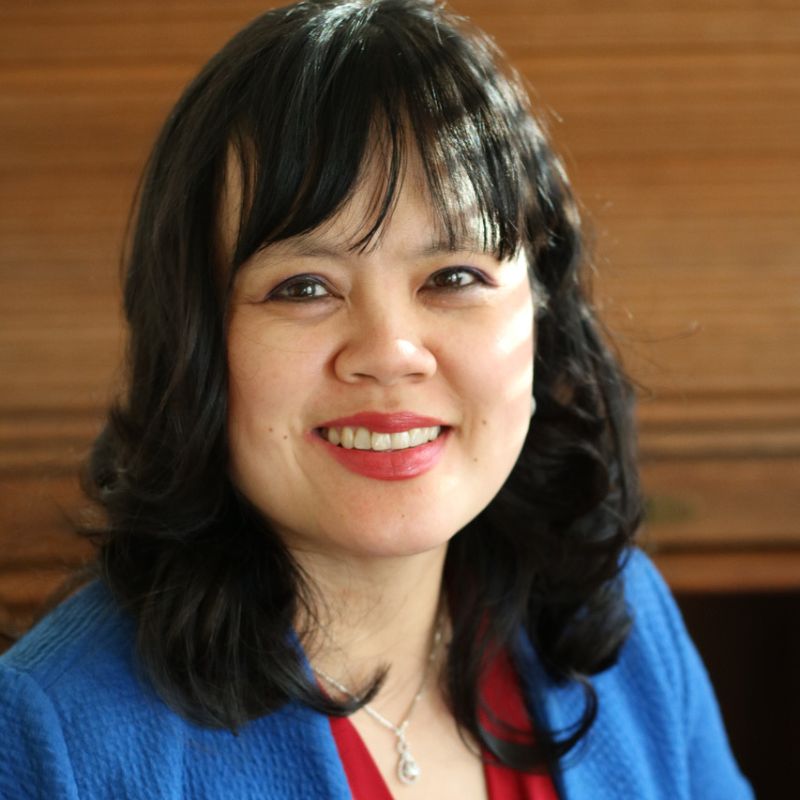
“Absolutely! Yes to setting healthy boundaries.”
The above Instagram comment seeded this article.
I’ve written about ways to set necessary—healthy—boundaries. But the above quote sparked a new thought: Since there are healthy boundaries, there must also be unhealthy ones.
Sadly, scores of damaging strategies sully our interactions. Despite the different details, all unhealthy boundaries share the same commonality—in the process of setting and enforcing that boundary, negativity usually sprouts. Somewhere.
It can manifest in the form of feelings (like resenting the yes you said under pressure) or bodily sensations and symptoms, making you feel unwell. But this adverse reaction can, and often will, culminate in strained relationships.
Consider these five unhealthy boundaries as an example:
1. Fueled by Fear
In certain circumstances—like having to outrun the mountain lion while hiking—it can be useful for fear to motivate your legs to pump faster. For the most part, however, authorizing fear to manage your decision-making process will likely backfire.
Let’s apply this principle to our topic. Say the pastor’s wife asks you to decorate the sanctuary for Easter. The thing is, you’ve already committed to organizing the egg hunt for kids’ church, and it’s your turn to host the extended family for the holiday meal this year.
The mere thought of spending all those hours—plus decorating the church—enthralls and exhausts you both.
But then a thought pops up. How can you turn down your own pastor? Don’t you want to be indispensable to the church? Useful?
If this thinking prompts you to nod your assent, beware. You’re on the brink of violating your boundary due to fear of people (Deuteronomy 1:17, Proverbs 29:25, Isaiah 51:12, John 7:13). This broad concept covers a multitude of fears—of letting others down, losing their acceptance, dreading their wrath—and is a common unhealthy boundary.
2. Lying to Escape
Is there someone in your world who specializes in being pushy? Perhaps it’s Ashley, who insists on dropping by on a random Wednesday because she’s bored. Never mind that you’ve just crawled through three meetings with enraged executives back-to-back and are ready for a bubble bath and subdued Bublé.
Experience expects that if you were to explain how exhausted you are, your friend would respond with a breezy excuse for why she should still come—something along the lines of she’ll fetch takeout for dinner, it has been forever, and besides, she won’t stay long.
So, you lie. “I have COVID.”
It’s the easiest way to save yourself from having to humor Ashley, you convince yourself.
However, the Lord hates a deceitful tongue (Proverbs 6:16-17). Lying to untangle yourself from an unwanted visit will make it easier to craft another lie the next time around. Who is to say determined—or dense—Ashley won’t treat you to a repeat performance? Yet, according to Scripture, liars qualify as those who will spend eternity in the fiery lake (Revelation 21:8).
Saying no requires fortitude but is worth the practice.
3. Triangulation
Bear with me as I continue the analogy.
Let’s say your friend stormed in anyway, commandeering your evening, despite your lie about COVID. (She’s double-boosted and recovered from COVID herself, Ashley purred.)
If her behavior upsets you so much that you text another friend about it, you’ve just triangulated your conflict.
As the word implies, triangulation happens when three persons tango together. Instead of confronting person A—the one we have issues with—we complain about person A to person B.
Dragging another party into your dissatisfaction right off the bat might complicate matters and is definitely unscriptural. Proverbs 25:9 states, “Debate your case with your neighbor, and do not disclose the secret to another” (NKJV).
4. Oversharing
Do you tend to overshare?
Pay attention to how others respond after you share. If you consistently receive anything but a warm response, it’s possible you might have shared too many intimate details too soon.
If this phenomenon describes you, ask yourself why you tend to function this way. Don’t try to figure out the answer—just ask and wait for an inner response. Is there something inside you that craves acceptance? Attention? Affection?
Unfortunately, oversharing will not facilitate these things. It might only discourage others from getting to know you better.
Think of setting boundaries with new acquaintances as introducing them to your abode.
A stranger should only be received on the porch (and told superficial things like where you work and what you do).
In contrast, a pal you’ve met a few times can step inside your place. Perhaps you two can chat in the living room. It’s appropriate to explain more intimate details about yourself, such as why you decided to pursue your profession despite the pressures to run the family business.
When that person has proven, over time, that she is worthy of a closer friendship, go ahead and entertain her in your kitchen—where you can both swap heartfelt stories.
5. Retaliating
“Boundaries are not a way to punish those we don’t like.” This Instagram post garnered the comment I shared in the beginning.
The idea seems straightforward. Whether it’s because we’ve highlighted enough sentences in boundary-related books or because we instinctively get it, it makes sense not to weaponize our boundaries against someone else.
But if you get into an unresolved brouhaha and time only dumps more misunderstanding and heartbreak, it can be tempting to retaliate.
Here’s the thing. Some may not call it retaliation and employ euphemisms instead, like “I have to stop talking to Ashley for the sake of my mental health.”
Which sounds good, especially for a psychologist like me. Mental health is a valuable commodity to protect.
But will you allow time and space for private—albeit honest—reflections? What’s the real reason behind your decision to set this particular boundary? Does the punishment, so to speak, fit the crime?
Weaponizing boundaries will never lead to a thriving relationship because it goes against Romans 12:18, “If it is possible, as far as it depends on you, live at peace with everyone.”
Unburden the Unhealthy
Anyone can learn the necessary skills to set healthy boundaries. But if the thought feels overwhelming, here are a few starting points you can adopt:
-If you’re tapped out, name it. Don’t let shame coax you to adopt another assignment, volunteer an additional day, or commit to doing anything you don’t have the bandwidth for. God never requires you to worship your church leadership, so decline your pastor’s request if need be.
-When you have to refuse relentless souls—think Ashley above—stand your ground. Say no with courage.
-Share precious details about your life only with trustworthy individuals. Jesus tells us, “Do not give dogs what is sacred; do not throw your pearls to pigs. If you do, they may trample them under their feet, and turn and tear you to pieces” (Matthew 7:6). The point isn’t to compare anyone to animals, but that there is a time for everything (Ecclesiastes 3:1). Disclose intimate details only when the time is right.
-Always strive to resolve misunderstandings. Follow the steps outlined in Matthew 18:15-17.
The last bullet point requires conflict resolution, which tends to intimidate many of us. (Perhaps that’s why resources on this topic abound.) If you enjoy freebies, however, download the bonus chapter for Surviving Difficult People, and you’ll receive manageable, bite-sized instructions.
With practice, you can rework anything in your life that contributes to setting—or maintaining—unhealthy boundaries.
Take it from someone who lied to set her boundary.
Photo Credit: ©Getty Images/AaronAmat



